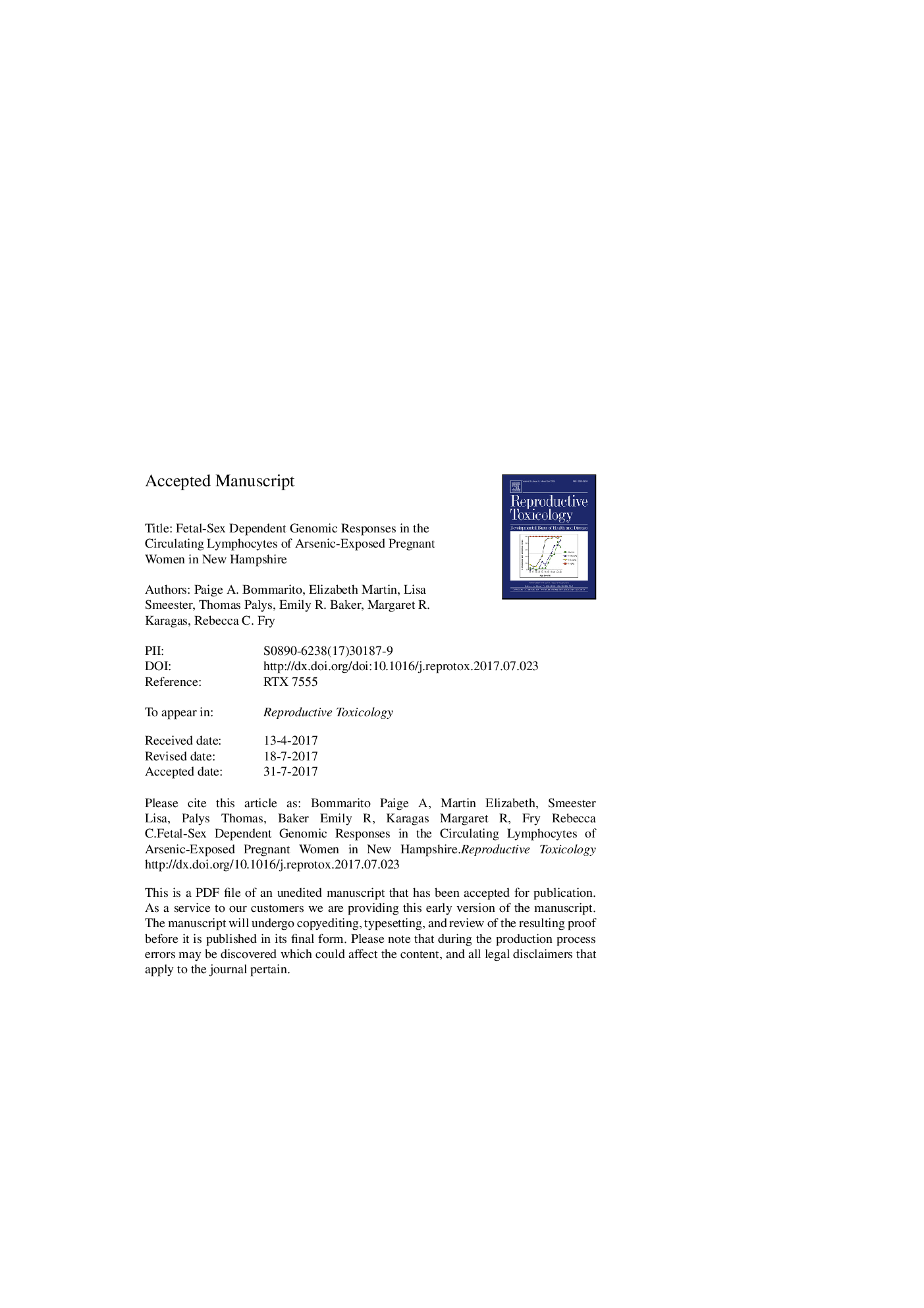| Article ID | Journal | Published Year | Pages | File Type |
|---|---|---|---|---|
| 8552614 | Reproductive Toxicology | 2017 | 43 Pages |
Abstract
Exposure to inorganic arsenic (iAs) during pregnancy is associated with adverse health outcomes present both at birth and later in life. A biological mechanism may include epigenetic and genomic alterations in fetal genes involved in immune functioning. To investigate the role of the maternal immune response to in utero iAs exposure, we conducted an analysis of the expression of immune-related genes in pregnant women from the New Hampshire Birth Cohort Study. A set of 31 genes was identified with altered expression in association with levels of urinary total arsenic, urinary iAs, urinary monomethylated arsenic and urinary dimethylated arsenic. Notably, maternal gene expression signatures differed when stratified on fetal sex, with a more robust inflammatory response observed in male pregnancies. Moreover, the differentially expressed genes were also related to birth outcomes. These findings highlight the sex-dependent nature of the maternal iAs-induced inflammatory response in relationship to fetal outcomes.
Related Topics
Life Sciences
Environmental Science
Health, Toxicology and Mutagenesis
Authors
Paige A. Bommarito, Elizabeth Martin, Lisa Smeester, Thomas Palys, Emily R. Baker, Margaret R. Karagas, Rebecca C. Fry,
